Frightening Obviousness (Olavo de Carvalho)
Frightening Obviousness (Olavo de Carvalho)
By now, it has become obvious that even some of the fiercest accusers of government corruption are more interested in salvaging the image of the PT than in uncovering the truth. I’ve said it dozens of times, and I’ll say it again: organized leftism — not the PT alone, but the network of parties affiliated with the São Paulo Forum — is more powerful than Congress, more powerful than the business sector, more powerful than the judiciary, more powerful than the Church, more powerful than the media, more powerful than the military. No one has the means to punish it, no matter what it does.
To this movement, the Brazilian State is nothing but malleable material, a tool to be shaped and reshaped at its will, in whatever style it chooses, provoking nothing more than isolated, weak, and impotent complaints. The mere fact that its opponents restrict themselves to criticizing minor details — without the courage or ability to expose the ideological and strategic framework behind it all — is already the most damning proof that they have been defeated, are submissive, clinging to futile excuses to avoid recognizing the scale of the tragedy that persistent cowardice has led them into. They bicker over retail matters because they know they’ve already lost wholesale.
And I’m not talking about Brazil alone: the entire Latin American continent, with the exception of Colombia, Chile, and a few small Central American nations, is already under communist control, and will not come out unscathed — just as no people subjected to a similar experience ever have.
From the moment the very sectors most invested in the survival of capitalist democracy fell for the hoax of the “end of communism” and suppressed in themselves every last trace of anti-communist instinct, they were virtually dead and buried. Starting with the media moguls — frightened little rabbits, trembling before the communist chieftains they themselves empowered and before the state-owned banks that prop up their struggling companies.
The fate of Latin America is sealed: the future is called the Union of Socialist Republics of Latin America. The prophecy of Fidel Castro, issued at the 4th Assembly of the São Paulo Forum, is well on its way to being fulfilled: the international communist movement is already reconquering in Latin America everything it lost in Eastern Europe.
With one major difference: in Eastern Europe, it advanced over the corpses of heroes and martyrs; in Latin America, it glides effortlessly over the formless paste of cowardice, omission, and collaborationism.
And don’t be fooled into hoping for some American rescue operation. The rise of communism in Latin America is in the highest interest of the American champagne left, which represents the cream of the country’s economic elite and, on a global scale, the intellectual and financial vanguard of globalism.
It’s true that this crowd faces fierce resistance from American conservatives and nationalists, but they began fighting far too late — only in the 1980s — while the Left had already dominated elite circles, universities, entertainment, and major media outlets since the 1930s.
Today, leftists control the flow of official aid to the Third World, which — along with billions in foundation money — funds revolutionary movements while being systematically denied to anything remotely “right-wing.”
Try it for yourself. Submit a project inspired by Judeo-Christian values, the defense of individual rights, or free-market economics, and ask for funding from any U.S. government agency or mega-foundation. At best, you’ll receive polite brush-offs. Now propose some nonsense under the banner of “fighting inequality,” abortion rights, feminism, or LGBTQ issues — and the coffers will open wide.
Of course there are many people in America opposed to this. Of course conservatives now have the support of the majority of the U.S. population. Of course a rediscovery of traditional American values is creating real challenges for the leftist elite. But still, it will take decades of struggle before that can translate into a true shift in American foreign policy.
Even in the Middle East, where Bush’s plan to spread democracy among Islamic peoples has achieved spectacular success — acknowledged even in Brazil by an old-school leftist like Caio Blinder — internal support for the president is continually sabotaged by propaganda campaigns so grotesquely dishonest they border on hallucination, threatening to abort the American effort and return Iraq to Saddam Hussein’s gang.
Under such conditions, how could the U.S. possibly intervene in Latin America? When the Left itself loudly proclaims as imminent what is, in fact, a glaring impossibility, it’s only because it knows how to exploit the dual psychological effect — both stimulating and numbing — of deceptive propaganda: to inject fear and hatred into the hearts of gullible nationalists (especially among the military), and to soothe idiot businessmen with false hopes and delusions.
Perhaps the greatest foolishness of the anti-PT crowd is the confidence they place in the PSDB. That party belongs to the Socialist International, and during Fernando Henrique Cardoso’s administration, it was responsible for turning the MST into the most powerful mass movement on the continent and for the widespread introduction of communist propaganda into schools.
To accept it as the embodiment of the “right-wing” is to fall into the PT’s verbal trap, which defined moderate leftism as the extreme limit of acceptable right-wing thought, criminalizing everything beyond that in order to secure for itself control over the entire political spectrum, effectively blocking the emergence of a genuine capitalist-democratic opposition.
Fernando Henrique himself, to the enthusiastic applause of PT member Cristovam Buarque, already declared that his party has no ideological or strategic differences with the PT, that between them there are only minor power disputes (inevitable even within a Soviet regime), and that the ultimate goals of both are exactly the same.
The childish malice of the Brazilian public may interpret this statement as nothing more than a superficial concession — a sly country-boy ploy. But Fernando Henrique is not stupid enough to try to deceive a seasoned opponent through cheap flattery. The stupid one is the listener who fails to see that the former president merely stated a factual, material, self-evident truth — something known to every informed member of the PT and PSDB alike.
Petism and Tucanism correspond, in the national microcosm, to communism and Fabian socialism on the international scale. Fabian socialism is the guiding ideology behind the European Union and, to a large extent, the United Nations (read The European Union Collective by Christopher Story, London, Edward Harle, 2002). Its core idea is to establish socialist dictatorship — full state control over all human endeavors — not through revolution but through gradual legislative changes.
The symbol of Fabian socialism is the tortoise, denoting slow and steady progress in contrast to the communist rush (during all the founding meetings of the European Community, a ceramic tortoise was placed on the boardroom table by former French president Valéry Giscard d’Estaing).
Today, it’s well known that the founders of Fabian socialism — Sidney and Beatrice Webb — acted under direct guidance from the Soviet government, presenting what seemed like an alternative to communism that was, in fact, just communism by more anesthetic means.
Eight decades later, the division of labor has not changed. Nor have the internal squabbles that serve only to throw sand in the audience’s eyes. When Fernando Henrique declares that, in the investigation of the mensalão scandal, it is important “not to destroy the PT,” he knows exactly what he’s saying. The idea is to secure for the PSDB a slightly better seat within the socialist power scheme, not to eliminate that scheme altogether.
The immense international support this scheme enjoys from globalist circles in Europe and the United States can be measured by the fawning over Lula by the American mainstream media (rabidly anti-Bush), by various European governments, and by the International Monetary Fund itself — which, no one seems to know, is a globalist bureaucracy, not the bastion of economic freedom that leftists portray it as in order to disguise the aid they receive from it.
If there’s anything that disgusts and irritates me, it’s having to abandon the realm of analysis and diagnosis, where I move freely, for that of practical suggestions, which are the business of politicians, not scholars. I hate giving advice. But there is one piece I can’t withhold.
It is insane stupidity to try to combat a broad strategic scheme with scattered accusations, when the scheme in question includes everything from the ideological poisoning of young children to vast international networks of economic, political, media, and military support.
If you really want to do something effective against leftist hegemony, stop fooling yourselves with the utopian belief in half-measures, stop trusting investigative committees presided over by the accused themselves, stop trying to pierce an elephant’s hide with sewing pins.
Admit that against a continental-scale communist strategy, only an equally broad anti-communist strategy can make a difference. Admit that the only thing that can save you is exactly what you most fear: a systematic, comprehensive ideological confrontation.
Embrace the defense of Judeo-Christian values, the Western model of democracy, individual liberties, and say the name of the enemy out loud: communism.
If you’re afraid even to name the beast, how can you hope to defeat it?
I know it’s late — far too late — to begin a fight of this magnitude. But there are still things that can be done with modest means and great effectiveness.
One of them is this: once we admit that there no longer exists in Brazil any authority higher than the organized Left, it’s time to appeal to international judgment, using the weapons of globalism itself against its local protégés.
It costs nothing for some interested group to submit a petition to the Organization of American States, requesting an international, independent investigative commission to examine the crimes of the PT.
I doubt anyone will have the courage to do it, but when all the doors are closed, one must remember that windows still remain.
I’ll say more about this in the next articles.
To give you an idea of how reversed international news arrives in Brazil, everyone down there is announcing Roger Noriega’s departure in terms that present the former Undersecretary as the epitome of anti-Castro conservatism. The truth is precisely the opposite. Noriega was a softie, a “centrist extremist,” and that’s exactly why he was unpopular. His successor will most likely be Tom Shannon, a more resolute man. This still won’t bring about a complete shift in the State Department’s Latin American policy from passive to active, but it will certainly represent a victory of conservatism over the bureaucratic inertia—pro-leftist inertia inherited from the Clinton administration. The purge George W. Bush began at the CIA now seems to be reaching the State Department.
Tuesday, at the Hudson Institute in Washington, I attended a lecture by Roger Pardo-Maurer, Deputy Assistant Secretary of Defense for Western Hemisphere Affairs, titled “The Return of an Aggressive Foreign Policy by Cuba.”
The speaker said things everyone already knew: that there is growing Cuban interference in neighboring countries, that there is a Castro-Chávez axis operating in the continent, that Fidel Castro commands and Hugo Chávez finances the agitation in Bolivia to bring the cocalero Evo Morales to power.
A few hours later, the Venezuelan newspaper El Universal published, in its online edition, the reaction of Venezuela’s ambassador Bernardo Álvarez, who claimed that Pardo-Maurer’s words were nothing more than a tactic to spread fear and garner votes in favor of the Central American Free Trade Agreement.
This response is a prime example of foolishness. Pardo-Maurer’s lecture was attended by at most thirty individuals, mostly scholars of Latin American affairs—people not easily frightened by old news. And there was no government representative present, except for the speaker himself, who therefore could not reasonably expect any concrete action from the audience.
The importance of the ambassador’s reaction lies not in its content, but in the mere fact that it occurred: there was no official representative from the Venezuelan government or media at the Hudson auditorium. Some well-camouflaged informant must have run straight to the embassy afterward to stir up intrigue.
Nothing could be more typical of communism: practicing Cold War tactics while accusing the United States of wanting to bring the Cold War back.
0



 Neil Oliver
Neil Oliver
 Blackpill_52
Blackpill_52
 Stefan Molyneux
Stefan Molyneux![React: JOÃO CARVALHO NÃO SABE O QUE É FASCISMO [REVOLUSHOW] - João Eigen](https://cdn.mgtow.tv/upload/photos/2025/09/YXcSnwZzQwbRDiR5U9lb_12_c860c21a8b09d171d1e4cd1584ab61cf_image_thumb_high.jpg)
 Sant77
Sant77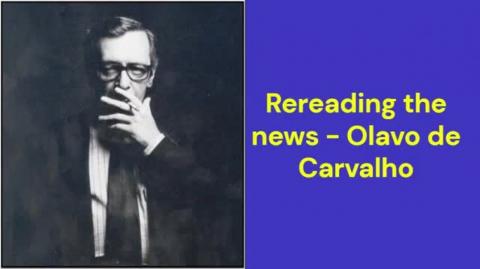
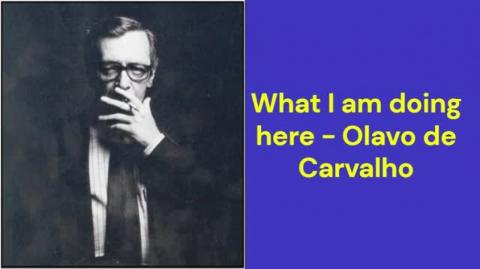
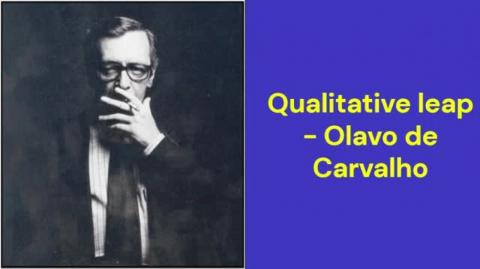

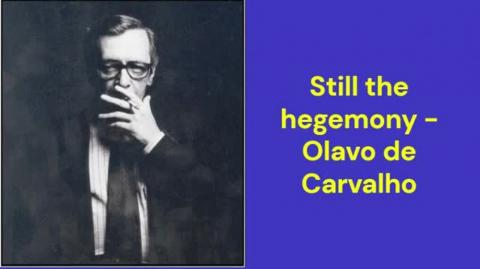
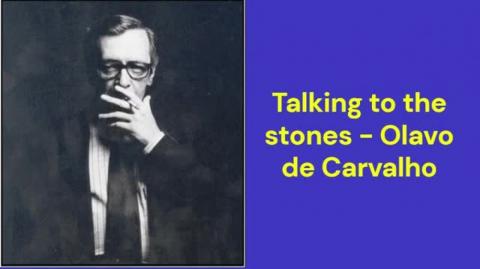
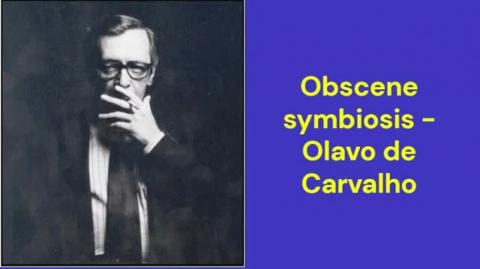

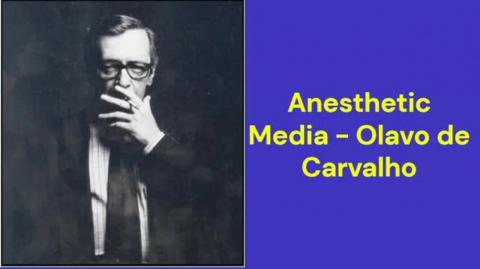
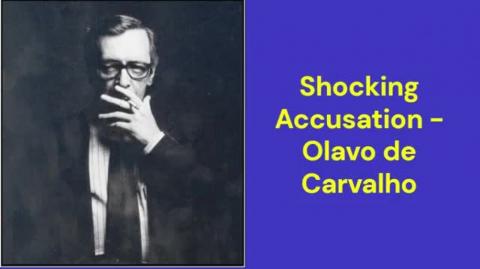
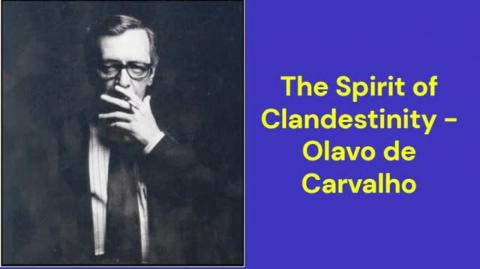
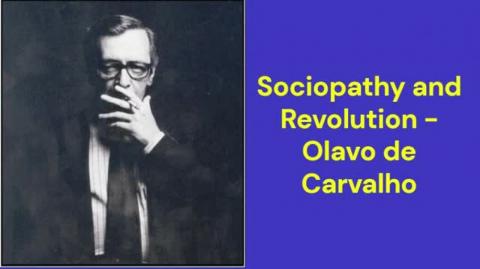
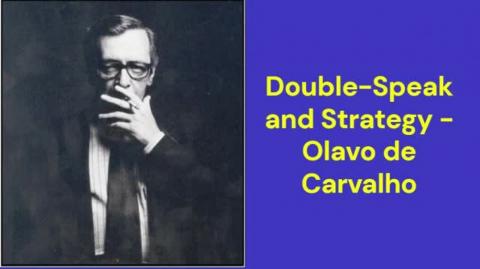

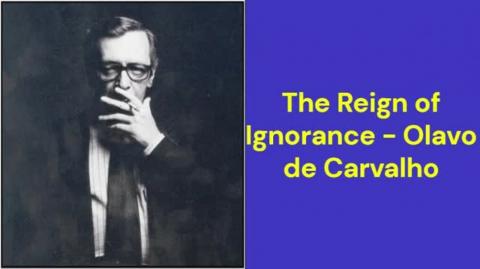



Log in to comment